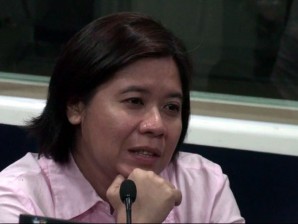Comelec to distribute 40M voters’ identification cards in early 2014
MANILA, Philippines—The Commission on Elections is planning to conduct a “massive distribution” of some 40 million new voter’s identification cards during the first part of 2014, two years before the next presidential polls.
This was disclosed to the Philippine Daily Inquirer on Wednesday, by Comelec Commissioner Grace Padaca who referred to the voter’s ID distribution program as “one of the poll body’s priority projects next year.”
“IDs will also be issued to about 10 to 15 percent of the country’s 52 million-plus registered voters as soon as they have submitted their biometrics (photograph, fingerprint and signature) to Comelec,” she said.
In a phone interview, the former Isabela governor also said the poll body has been “considering opening all Comelec offices nationwide even on Sundays, as well as tap shopping malls, for the voter’s ID issuance program.”
An undisclosed number of IDs “have been stored at Comelec offices since the time of Chairman Benjamin Abalos Sr.,” the agency’s head from 2002 to 2007, she said.
Article continues after this advertisementPadaca, however, said she was “not sure why those IDs had not been distributed to their recipients.”
Article continues after this advertisementOnly election registrants whose biometrics were captured digitally during the ID application periods set by the Comelec, using its Voter’s Registration Machines (VRM) and the old Data Capture Machines (DOM), have been issued voter’s IDs.
The IDs were issued to registered voters pursuant to Section 25 of Comelec Resolution No. 8189.
According to the Comelec, a voter’s ID is a “valid ID that is recognized by all government offices and banks for a person’s identification purposes.”
However, it is “not a requirement for a person to vote.”
In 2012, the Comelec required all registered voters nationwide to undergo biometric registrations for the 2013 and 2016 elections. The procedure entailed voters to submit their pictures, fingerprints and signatures for record and verification purposes.
In late 2012, the poll body issued guidelines for the release, distribution and reprinting of voter’s IDs.
Under the new rules, election offices all over the country were required to post the names of the voters whose IDs were available for release.
The new guidelines also said that registered voters who have delisted or deactivated their registration could not be issued ID cards.
“This means that the IDs of those who have been identified as multiple registrants, which is an election offense, or who have passed away will no longer be released. Instead, the IDs, which will be marked, cancelled, will be attached to the Voters’ Registration Records (in Comelec offices),” said the poll body.
On the other hand, “those who have had their registration deactivated will not be able to claim their IDs until their registration has been activated.” Deactivation is the consequence of having failed to vote in two consecutive elections.
According to the Comelec, “this is a common occurrence, which many voters tend to overlook. Fortunately, reactivation is a fairly easy process where the voter simply has to fill up the appropriate form at the local Comelec office.’
Meanwhile, the Comelec has proposed a budget of P40 million for its Voters’ Education Program, one of the 10 pillars of the constitutional body’s “Comstrat 11-16” program short for Comelec Strategies from 2011 to 2016.
The program calls for, among others, “public consultations, media management seminars and efforts aimed at making the Comelec law department more active in responding to election-related queries raised by the voting public.”
According to Padaca, who heads the voters’ education program, the poll body is also “considering educating even non-voters, including high school seniors and college freshmen, about the importance of honest and clean elections, as well as voting wisely.”
“Our advocacy would also call for the inclusion in the education curriculum the need for election reforms, like doing away with vote-buying and supporting political dynasties, and making our electorate more mature,” she said.
Padaca added, “we have to start this early. The next national elections are just a little over two years from now. Cramming is the last thing on our mind.”
Aside from voters’ education, the other pillars of Comstrat 11-16 are election administration, election disputes adjudication, professional competency, culture of integrity and accountability, legal and policy framework, technologically capable poll body, linkage with external stakeholders, and structural development, which calls for the construction of a multi-story Comelec headquarters on a government lot in Metro Manila.
